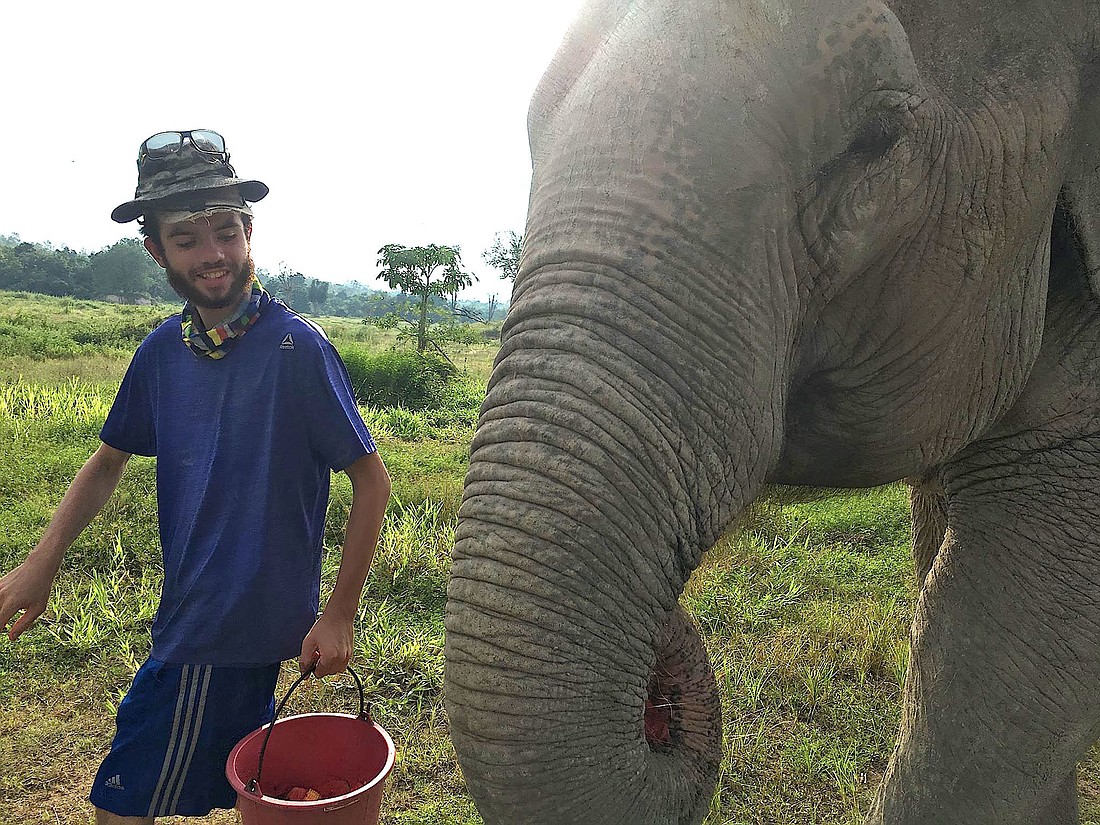- January 10, 2025
-
-
Loading

Loading

Blake Jacoby can attribute his new job at a primate sanctuary in South Carolina, in part, to a gibbon that liked his grooming skills.
The Windermere resident recently graduated from Florida Gulf Coast University with a degree in biology and moved last week to Summerville, South Carolina, having accepted a caregiver position with the International Primate Protection League.
There are more than 30 gibbons with this organization, and Jacoby will be preparing their food, maintaining their cages and taking care of the animals. This job offer came following a summer internship with a wildlife sanctuary in Thailand.
Jacoby said he always has been interested in animals. He and other members of FGCU's Wildlife Club volunteered at The Talkin' Monkeys Project Inc., in Clewiston. This small primate sanctuary is home to nine gibbons, four capuchins, a spider monkey and a squirrel monkey. One gibbon snarled at Jacoby every time it saw him, but there was one trusting gibbon that always scurried across its cage and put its back toward Jacoby, ready for its human friend to start grooming it.
Jacoby fell in love with the place and the animals and volunteered there every Sunday. He even visited IPPL in Summerville, where he ultimately landed a job.
"It's the human characteristics that you see in animals that I love," he said.
This experience led to an international adventure. After graduating from FGCU, Jacoby packed his bags and headed to Asia for an eight-week summer internship with Wildlife Friends Foundation Thailand.
He volunteered in two sections of the wildlife sanctuary: six weeks at the wildlife rescue center and two with the elephant rescue. His daily tasks were food preparation, field work and cage maintenance.
Creating enrichments for the animals also is important, Jacoby said.
He explained that in the wild, animals are constantly busy, looking for predators, caring for their young and searching for food. Although the animals at the sanctuary have plenty of space to roam and behave like animals, the conditions are different.
So, Jacoby and the other volunteers give the animals stimulated challenges, such as searching for food in a pile of hay.
Every day was different at WFFT, he said. The organization specializes in rescue and rehabilitation, so daily it received animals that were struck by vehicles or orphaned due to poaching. Many of the larger animals that live there once were circus performers or were used for tourism.
Feeding the sun bears and Asiatic black bears was fun, Jacoby said.
"The bears were probably my favorite to feed," he said. "They would lock them in the side enclosure to be able to clean the big enclosure. We had big buckets of food, and we would hide them around. And then we go out and they would start looking for the chunks of food."
Jacoby is grateful for all of the experiences.
"There's a lot to be done in the field of wildlife conservation," he said. "But you don't have to do one big thing; you don't have to own the sanctuary in order to be able to say, 'I'm doing something.' Even me being there, cutting up a piece of corn or cucumber for a macaque that was formerly abused. … I know I'm doing my part.
"You don't have to do something big to do something," he said.